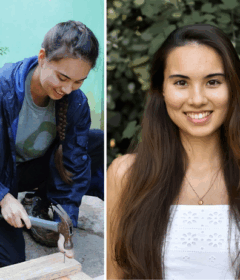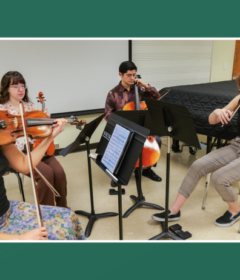Stetson student conducts cancer research this summer
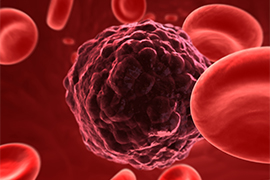
Stetson senior Phasin Gonzalez ’20 joined students from around the world this summer, conducting medical research with the faculty at the University of Kansas.
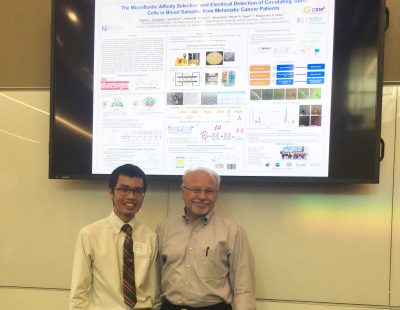
A biochemistry major at Stetson, Gonzalez worked on several clinical trials for cancer research in collaboration with the University of Kansas Medical Center. He was one of 95 undergraduate students to present their research during a poster symposium at the University of Kansas on Friday, July 26.
His research project was entitled, “The Microfluidic Affinity Selection and Electrical Detection of Circulating Tumor Cells in Blood Samples from Metastatic Cancer Patients Enrolled in Clinical Trials.”
Gonzalez explained that primary cancer tumors shed cells into the blood stream of a patient and these circulating tumor cells can seed metastases that can eventually lead to a patient’s death. The prevalence of these cells in the blood is associated with the severity of the cancer disease, so the ability to detect them can aid in the diagnosis and in monitoring the effectiveness of various treatments. Also, unlike a biopsy that requires removal of body tissue to make a diagnosis, detecting circulating tumor cells in the blood is minimally invasive and suitable for frequent analysis, he said.

Working with University of Kansas Chemistry Professor Steven Soper, PhD, Associate Research Professor Malgorzata Witek, PhD, and others, Gonzalez used “sinusoidal microfluidic devices coated with monoclonal antibodies” to capture and isolate these circulating tumor cells from blood samples from cancer patients. Then, he counted these cells using “an electrical-impedance sensor.”
“These technologies were implemented to monitor cancer progression in patients with metastatic pancreatic cancer or colorectal cancer treated with Niraparib, Melphalan, or Mitomycin C in ongoing clinical trials,” he said, adding that these drugs are given after chemotherapy treatment to treat any potential relapse of cancer diseases.
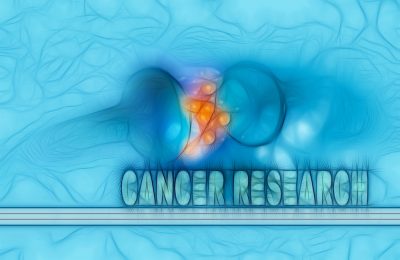
“It has been very challenging,” said Gonzalez by phone, back home this week in Daytona Beach. “This experience has really opened my eyes to the research experience that could potentially benefit our society.”
A Peer Instructor for Chemistry and treasurer of Alpha Epsilon Delta pre-health honor society, Gonzalez said he plans to apply to medical school during the upcoming academic year. He would like to become a doctor while also remaining in the field of research. He applied for the 10-week summer internship at the University of Kansas and was selected for the position, which also came with a stipend, living accommodations and travel allowances.
Gonzalez said he was grateful to Stetson’s Chemistry Department, especially Chemistry Professor W. Tandy Grubbs, PhD, and Assistant Chemistry Professor Paul Sibbald, PhD, who helped him apply for the research position. And he was grateful for “all the knowledge that I’ve obtained from all the classes that I’ve taken in the Department of Chemistry because without them I would have been pretty lost during the research.”

